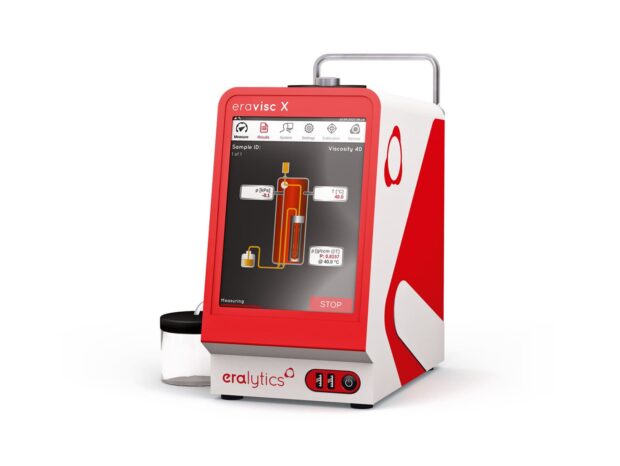Standard Test Method for Dynamic Viscosity and Density of Liquids by Stabinger Viscometer (and the Calculation of Kinematic Viscosity).
Get more information about the standard at ASTM D7042-21a.
ASTM D7042 is a test method for measuring the dynamic viscosity and density of liquids using a Stabinger-type rotational viscometer. The standard is widely used to calculate kinematic viscosity and density, important parameters for the characterization and quality control of fuels, lubricants and other liquid products. The method is known for its precision, efficiency and adaptability to different types of liquids. Instruments compliant with this standard ensure precise, repeatable results, supporting quality control, regulatory compliance, and product development. This makes ASTM D7042 a cornerstone in liquid analysis and industrial testing.
Details
ASTM D7042 combines the measurement of dynamic viscosity (resistance to flow) and density to determine kinematic viscosity, which is expressed in mm²/s. The test is performed with a rotational viscometer equipped with a magnetically driven rotor and a precisely controlled measuring cell. The standard covers a wide range of viscosities and densities, typically between 0.2 and 20,000 mm²/s for the kinematic viscosity and 0.65 to 1.5 g/cm³ for the density. The temperature range is generally between 15°C and 100°C and is suitable for most industrial applications. Compared to conventional glass capillary methods, ASTM D7042 offers faster and more reproducible results and requires smaller sample volumes, making it ideal for high-throughput environments.
Industries & Applications
This standard is applied in industries where viscosity and density are critical for product performance and compliance:
- Petroleum (Fuels, Oil & Gas): Analyzing crude oil, fuels, and biofuels for performance characteristics like flow and combustion
- Automotive and Lubricants: Evaluating engine oils, gear oils, and hydraulic fluids for optimal performance
- Chemicals: Testing liquid raw materials and formulations for quality assurance
- Aviation: Ensuring the proper viscosity and density of jet fuels for safety and efficiency
- Food and Beverage: Monitoring the consistency of liquid products like oils and syrups
